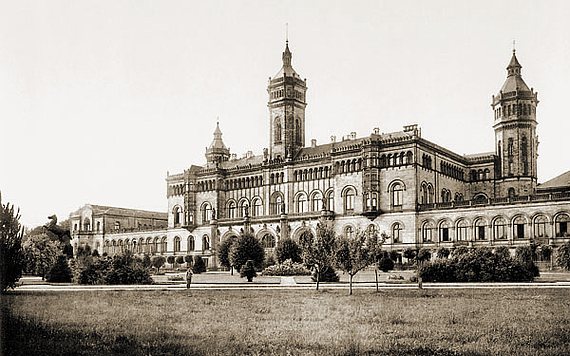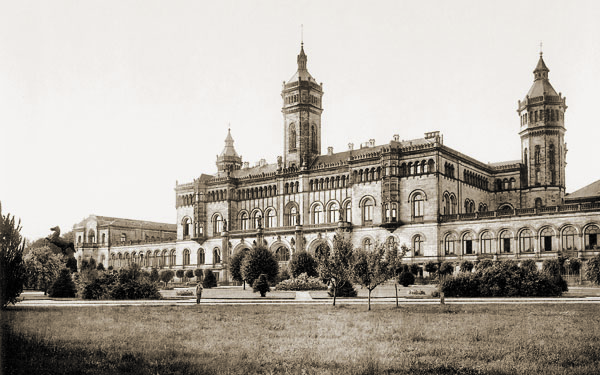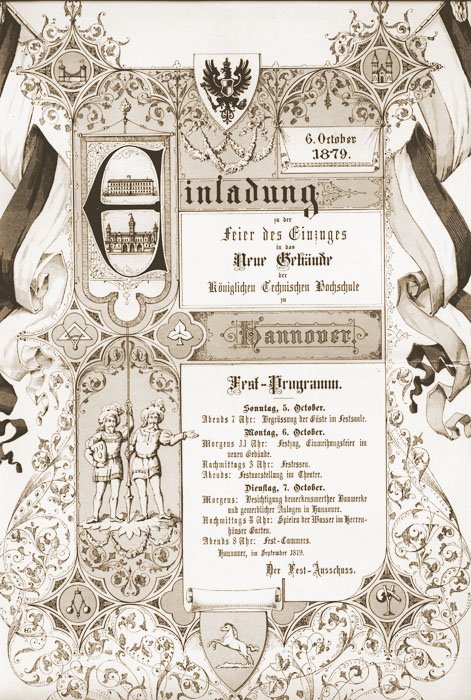


The number of subjects taught doubled between 1875 and 1897. New areas such as shipbuilding were introduced. The academic staff grew accordingly. On 1st April 1879 the Polytechnic was awarded the official title “Hannover Royal Institute of Technology.”.
With the Institute of Technology’s constitution, which came into force in 1880, one of the major differences between Hannover and the other German technical institutions was removed. The radically new constitution reorganised the Institute of Technology into five specialised departments: Architecture, Civil Engineering, Mechanical Engineering, Chemistry and Electrical Engineering, as well as General Sciences.
Management and administration of the Institute of Technology was in the hands of the departmental staff committees and departmental superintendents; the Senate and the Rector were responsible for the Institute as a whole. The Rector was elected for a three-year term of office.



The departmental staff committees as a whole received the right to nominate three candidates for the office of Rector to the Minister. With the right to confer the Habilitation and the title of Privatdozent, the Institute received the full status of an institute of higher education on an equal footing with the universities. This was a crucial step for the institutes of technology on the road to equality with the universities.
A further crucial step on the road to the emancipation of engineering was the enhanced status that the institutes of technology enjoyed when responsibility for them was transferred from the Department of Trade to the Department of Education, which was also responsible for the universities.
From purely technical colleges under the Department of Trade, the institutes of technology, like the universities, became part of academic research and teaching in the context of society as a whole.








